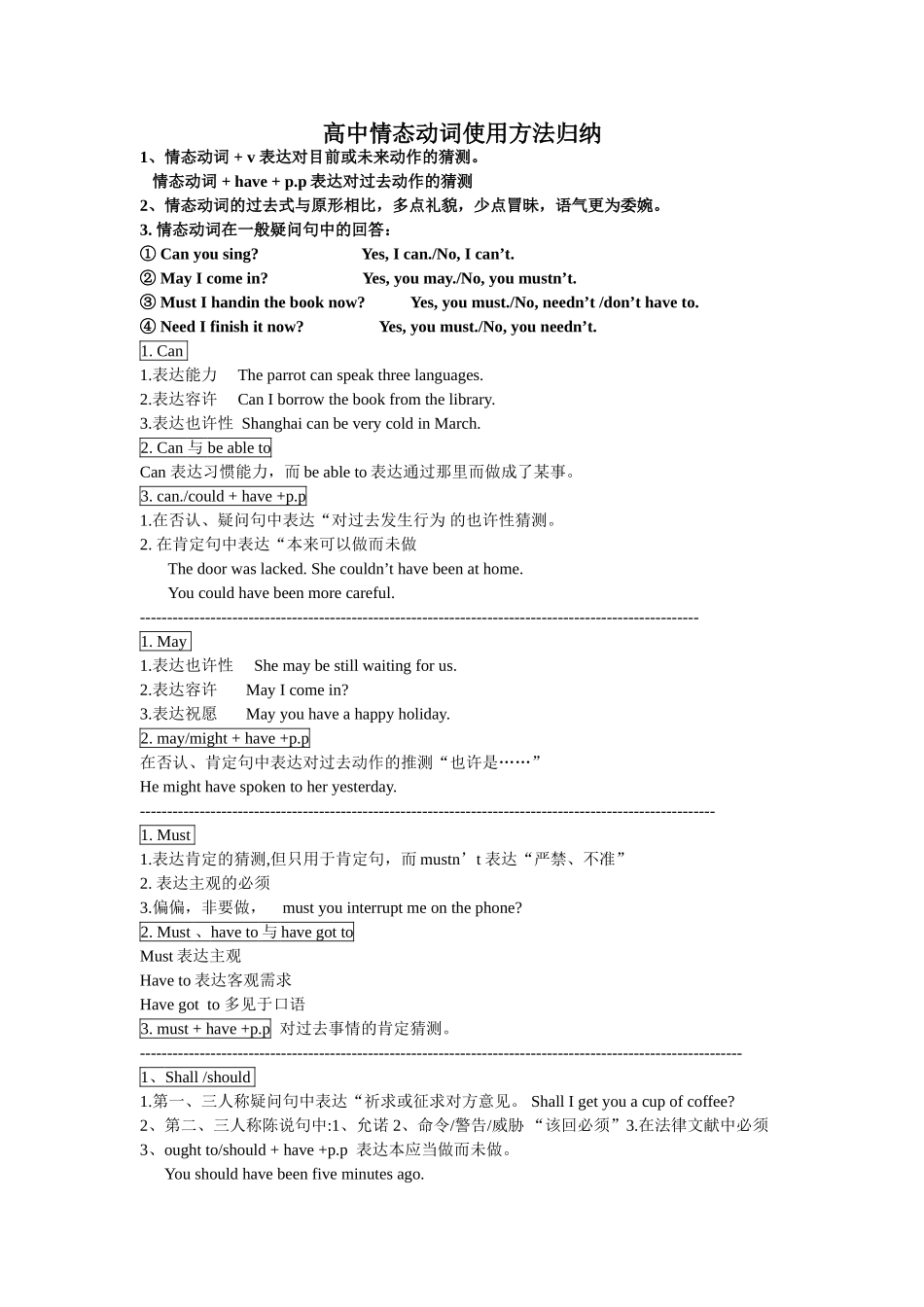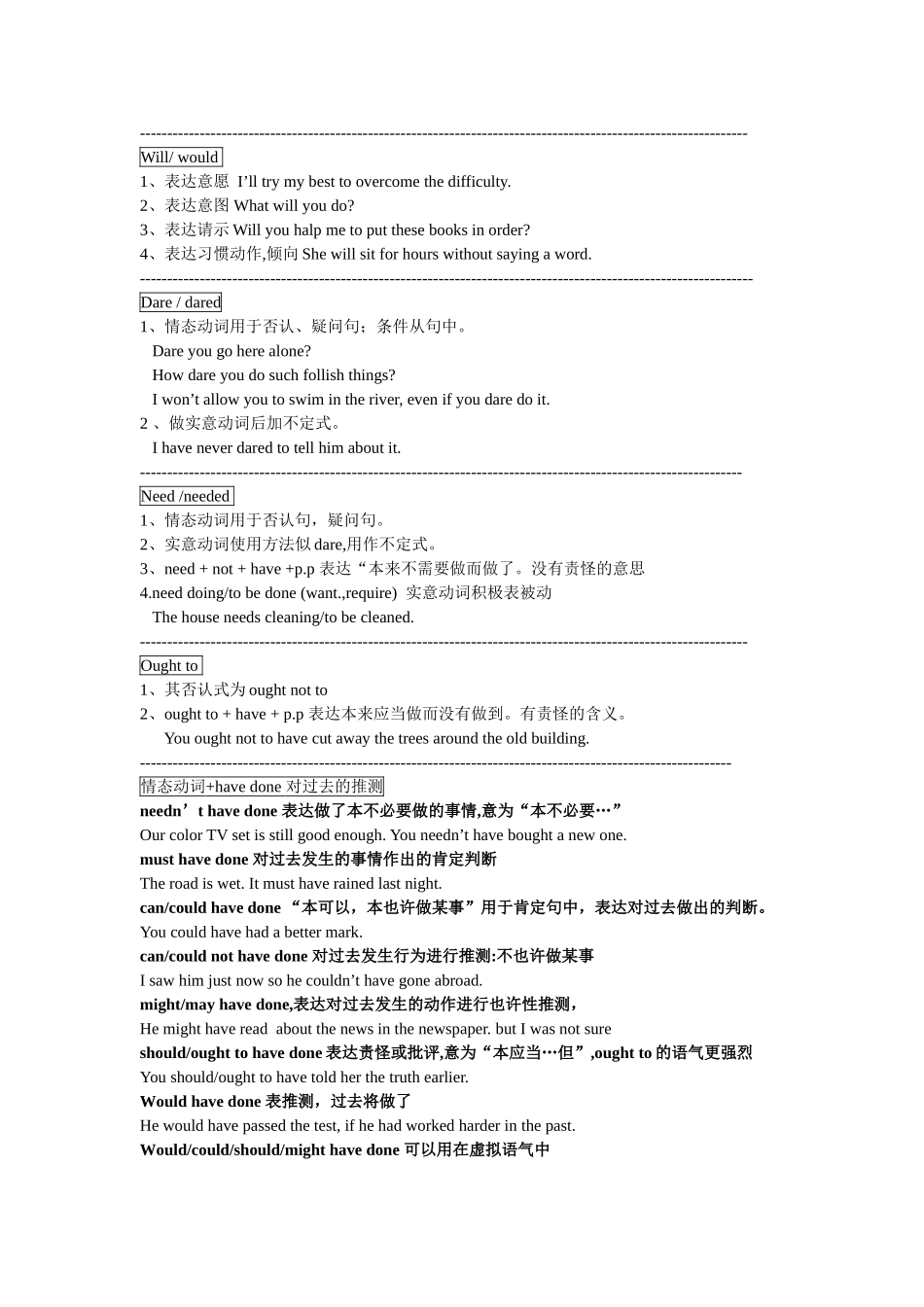高中情态动词使用方法归纳1、情态动词 + v 表达对目前或未来动作的猜测。 情态动词 + have + p.p 表达对过去动作的猜测2、情态动词的过去式与原形相比,多点礼貌,少点冒昧,语气更为委婉。3. 情态动词在一般疑问句中的回答:① Can you sing? Yes, I can./No, I can’t.② May I come in? Yes, you may./No, you mustn’t.③ Must I handin the book now? Yes, you must./No, needn’t /don’t have to.④ Need I finish it now? Yes, you must./No, you needn’t.1. Can 1.表达能力 The parrot can speak three languages.2.表达容许 Can I borrow the book from the library.3.表达也许性 Shanghai can be very cold in March.2. Can 与 be able toCan 表达习惯能力,而 be able to 表达通过那里而做成了某事。3. can./could + have +p.p1.在否认、疑问句中表达“对过去发生行为 的也许性猜测。2. 在肯定句中表达“本来可以做而未做The door was lacked. She couldn’t have been at home.You could have been more careful.-------------------------------------------------------------------------------------------------------1. May 1.表达也许性 She may be still waiting for us.2.表达容许 May I come in?3.表达祝愿 May you have a happy holiday.2. may/might + have +p.p在否认、肯定句中表达对过去动作的推测“也许是……”He might have spoken to her yesterday.----------------------------------------------------------------------------------------------------------1. Must 1.表达肯定的猜测,但只用于肯定句,而 mustn’t 表达“严禁、不准”2. 表达主观的必须3.偏偏,非要做, must you interrupt me on the phone?2. Must 、have to 与 have got toMust 表达主观Have to 表达客观需求Have got to 多见于口语3. must + have +p.p 对过去事情的肯定猜测。---------------------------------------------------------------------------------------------------------------1、Shall /should 1.第一、三人称疑问句中表达“祈求或征求对方意见。 Shall I get you a cup of coffee?2、第二、三人称陈说句中:1、允诺 2、命令/警告/...

